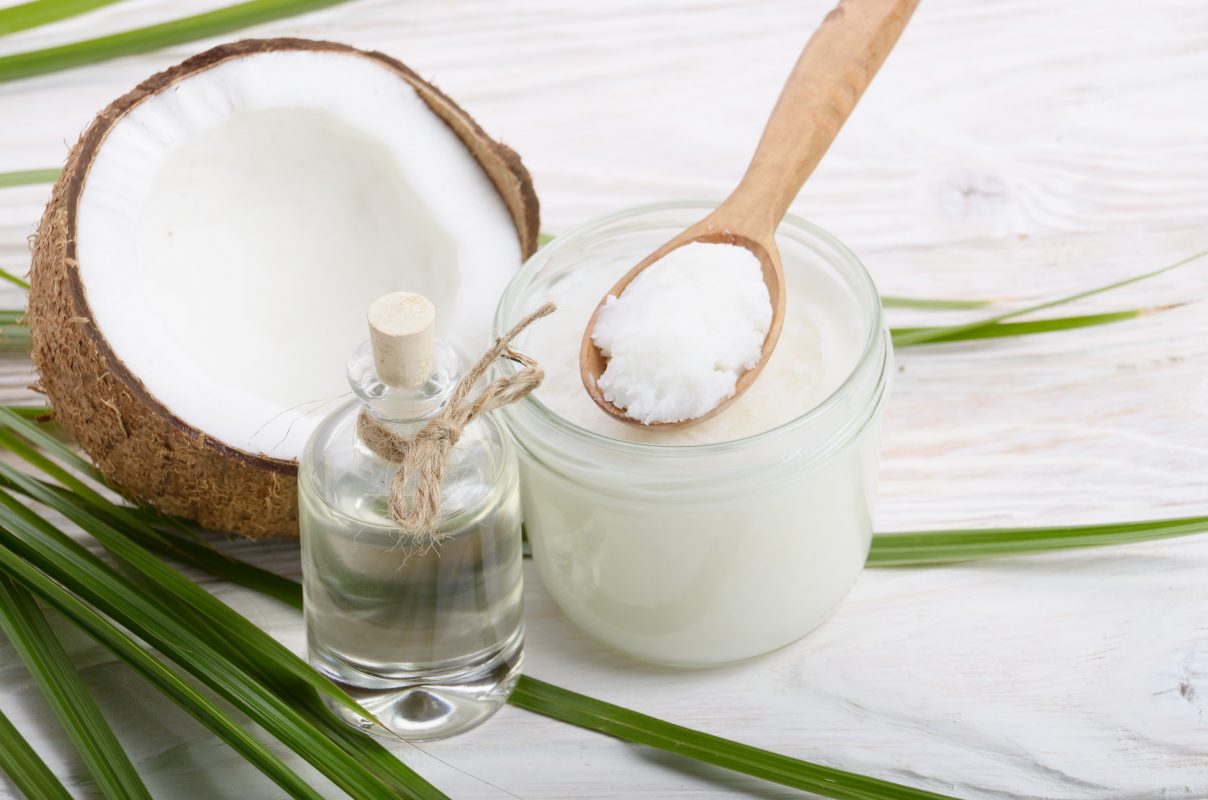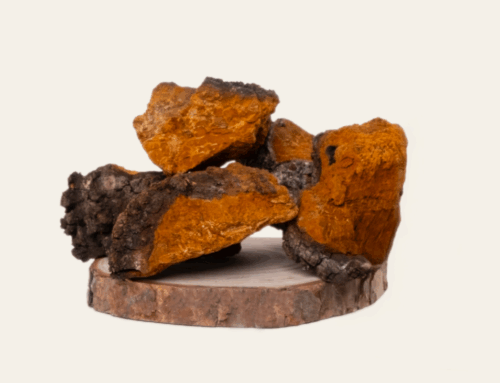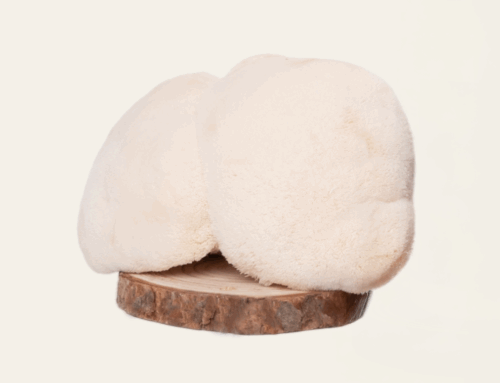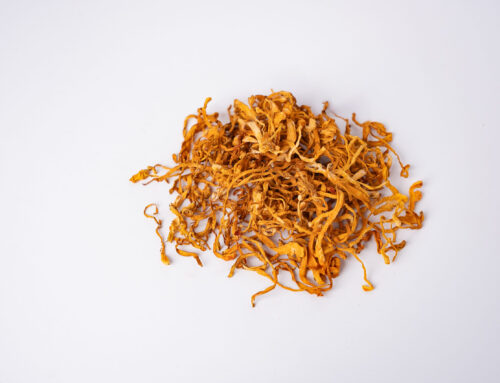That is the question… but really, WHAT is the answer?
(No seriously, PLEASE tell me if I should still be spreading coconut oil literally all over my life?!)
As you may know, coconut oil’s purported benefits run the gamut from being good for the gut & digestive health to supporting thyroid health and helping with weight loss – to its diversity of uses for natural beauty applications, such as for oral, skin & hair health.
Is there anything that it can’t (supposedly) do?!
Well, let’s get down to the nutty truth and let you decide if coconut oil is indeed right for you – and all of the parts of your life!
But, it’s 92% saturated fat!
Coconut oil was shunned from the health world for years because of its abundance of saturated fat – thought to be especially harmful to cardiovascular health, much like the shame that butter has felt for so many years! However, more recent research is showing that coconut oil’s banishment from the limelight may have jumped the gun, and this newsworthy fat has reclaimed its place in our health news feeds!
This is likely due to its rather unique nutritional profile, that looks beyond its whopping 92% saturated fat content.
Most of the fats in coconut oil are indeed saturated but they’re in a more favourable form, known as MCTs or Medium Chain Triglycerides [1], which affect the body differently than the more commonplace short- and long-chain fatty acids.
MCTs are composed of:
- Caprylic Acid – A “healthy fat” with antibacterial and antimicrobial properties.
- Capric Acid – Converts to monocaprin in the body and has immune-boosting as well as antimicrobial properties.
- Lauric Acid – This fatty acid is especially beneficial, making up 40-50% of the total fat composition of coconut oil – which makes it one of nature’s highest natural sources.
FUN FAT FACT: Lauric acid is also found in abundance in human breast milk. It converts to a monolaurin in the body, which is considered antimicrobial and beneficial for immune function [2].
Most of the fats we consume are long-chain fatty acids that must be broken down before they can be absorbed. However, coconut oil is high in short and medium chain fatty acids, which are easily digested and sent right to the liver for energy production – this translates to an instant energy boost and fuel for the brain [3].
Because MCTs are transported directly to the liver for breakdown, no pancreatic enzymes or bile are needed to digest it, making coconut oil a healthy fat option for those with gallbladder problems who would normally have difficulty digesting fats.
Not only is coconut oil a great source of beneficial fatty acids, including being the second most abundant source of lauric acid (breast milk is the first!), it’s also a decent source of several fat-soluble vitamins (mainly A & K), in addition to being a good source of health-promoting polyphenols.
A few of the many healthful uses & benefits of Coconut Oil and MCTs:
- For digestion – The concentration of beneficial fatty acids in coconut oil make it supportive in digestion. The antimicrobial properties can also help fight inflammation and infection in the gut from Candida [1].
- For immune support – The MCTs (including capric acid, caprylic acid & lauric acid) have antifungal, antibacterial AND antiviral properties that make it supportive for the immune system.
- For a mental boost – Some studies show MCTs may enhance focus and mental capacity [1].
- For hormonal support – The wrong kinds of fats can create havoc on hormones – after all, the body can only use the building blocks we give it! Coconut oil contains hormone-friendly fatty acids, making it supportive of natural hormone production.
- For DIY chemical-free natural beauty
- HAIR – coconut oil has been used for centuries in hair and its unique fat composition makes it especially beneficial for certain hair types. Try using it as a hair masque, hot oil treatment, or in DIY hair products.
- SKIN – The same properties make coconut oil great for skin as well. Many people like to use it as a natural moisturizer. Its natural antioxidant properties make it great for stopping wrinkles and skin irritation.
- For cooking – Virgin coconut oil doesn’t easily go rancid or break down at high temperatures like other oils do that are commonly used for cooking.
We’re also big fans of cold-pressed, naturally refined avocado oil and ghee (clarified butter) for high-heat cooking, as well as cold-pressed virgin olive oil, walnut oil, sesame oil, and macadamia nut oil for low heat cooking, or used cold in salads. Perhaps you may also consider steering clear of oils that have usually been highly processed, like most soybean oils, corn oils, sunflower/safflower oils, grapeseed oils, canola oils, and peanut oils.
So, while this all might sound like we’re completely nuts for coconut oil, you should always take caution when any one food seems to be carrying a shiny “health halo” in the media and on grocery store shelves.
The truth is that no ONE food is going to be the magic bullet in what should be a well-rounded health routine.
Have you tried our Core Protein Bar recipe yet?
It features not only a healthy dose plant-powered protein but a good dollop of coconut oil.
Now, go get your performance on!
REFERENCES
[1] Healthline (May 2018) – 7 Science-based Benefits of MCT Oil [2] Encyclopedia of Food Sciences and Nutrition (2nd Edition, 2003) via ScienceDirect: Coconut Palm [3] Journal of Lipid Research (June 2016) – Short- and medium-chain fatty acids in energy metabolism: the cellular perspectiveAdditional referenced content:
Ghana Medical Journal (September 2016) – Coconut oil and palm oil’s role in nutrition, health and national development: A review
Healthline (January 2018) – 10 Evidence-based Health Benefits of Coconut Oil
Healthline (September 2018) – Coconut Oil: Superfood or Poison?







I appreciate the information you stated here. More power to your blogging career
Coconut is a superfood that includes lots of health and splendor benefits. Apart from consuming uncooked coconut or adding them for your culinary delights, you could use its oil for extra makes use of.